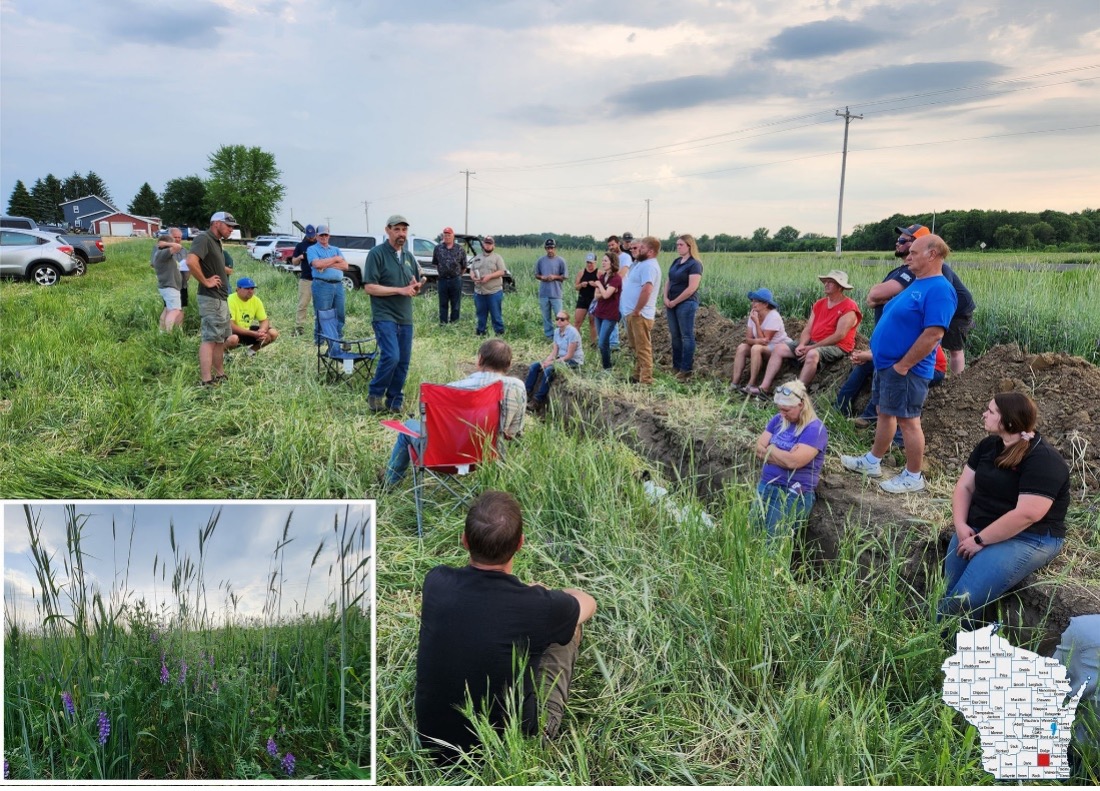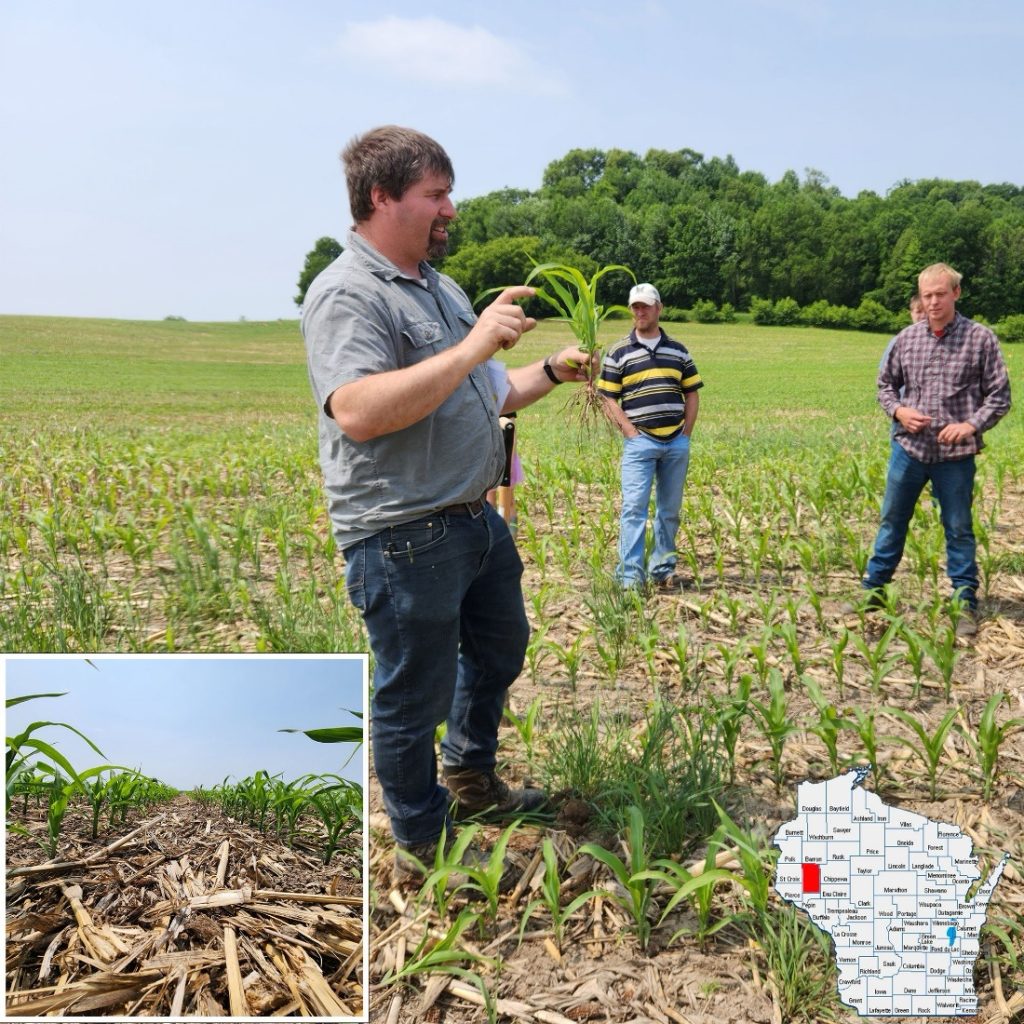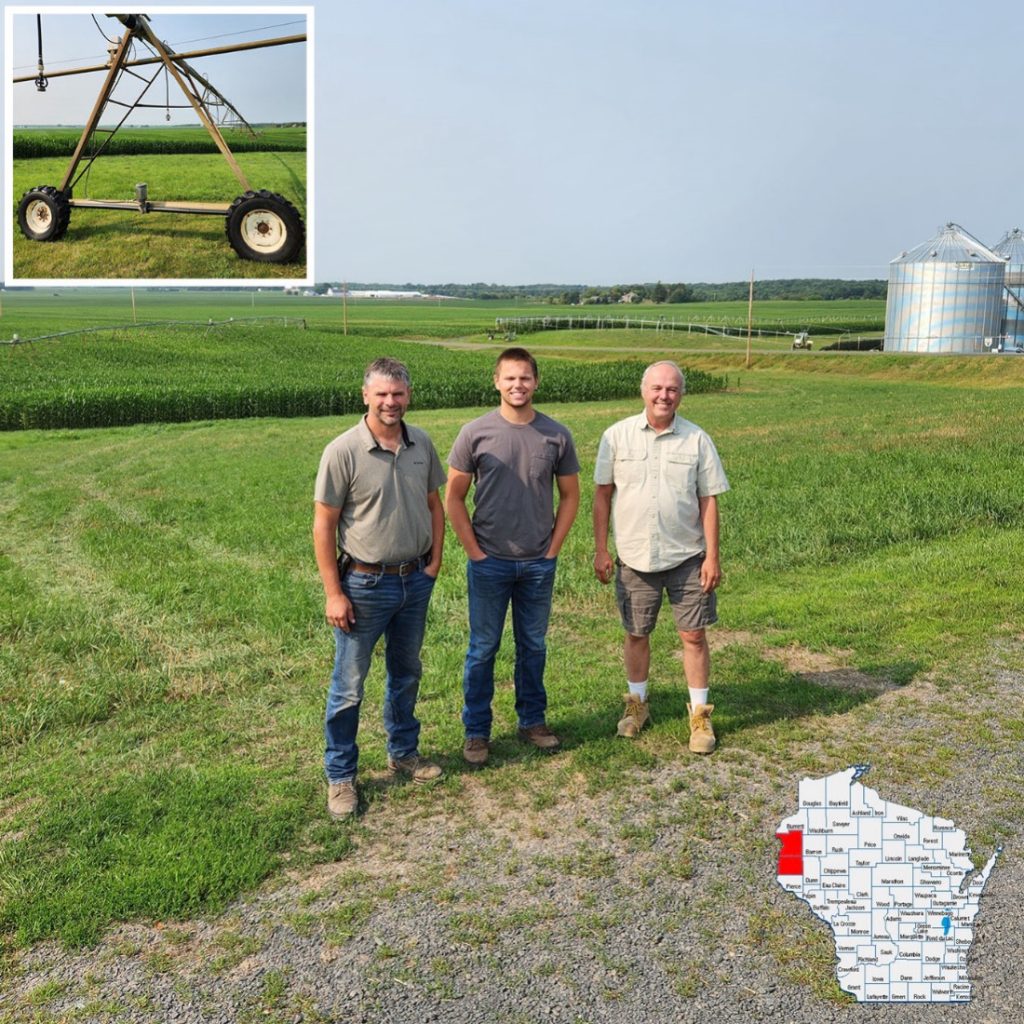The Commercial Nitrogen Optimization Pilot Program (NOPP) is a grant program funded by the State of Wisconsin, administered by the Wisconsin Department of Agriculture, Trade and Consumer Protection (DATCP), and supported by the University of Wisconsin–Madison Department of Soil Science and Division of Extension. These grants aim to refine and enhance the understanding of methods that optimize commercial nitrogen applied to agricultural fields, helping to protect vital soil and water resources. Read below to hear what Wisconsin farmers are investigating with their NOPP funding!
Weichmann
Another Nitrogen Optimization Pilot Program (NOPP) project spotlight! Grant recipient Dean Weichmann is exploring nitrogen crediting to corn from two different cover crop mixes.
In response to why he chose to conduct on-farm research, Dean insightfully says “We need to continually update research, without data it’s like driving in the dark and turning out the lights. Climate is changing, agronomy is changing. Our needs change. Costs, including what we recognize as the cost of runoff and pollution change as well.”
Crop consultant Tom Novak collaborates on Dean’s project and notes that “Historically we have had reliable UW-generated data on N credits from alfalfa and frost-seeded red clover in wheat. What’s missing is how much N can we generate from seeding high-legume mixes in late July after wheat grain and straw are harvested? NOPP Trials such as Dean’s will move us from testimonials of what we think happens to knowing what happens.”

Red Cedar Conservation Farmers
The Red Cedar Conservation Farmers (RCCF) watershed group is a Nitrogen Optimization Pilot Program (NOPP) grant recipient! This group of 4 producers is studying the effects of cover crop termination and cover crop tillage separately on nitrogen use efficiency.
Tryston Beyrer, a producer on the project says, “We found that, through some of our watershed’s groundwater sampling, we’ve had some wells that came back high in nitrate. In general, we have found some of our sandier soils, primarily but solely in this region closer to the Red Cedar have been a little bit higher in nitrate, so if we can better optimize our nitrogen recommendations through the NOPP group, we might have some new interesting findings that we can share with the group and surrounding areas. Working with UW and with the Red Cedar Conservation Farmers group has been good and we’ve got a few different producers – Mike, myself, Jeco, and Bill. All of us have different fields that are conducting trials to increase nitrogen efficiency while considering the effect of other management practices such as cover crops, tillage etc..”
Dunn County Land and Water Conservation Division employee Tina Barone is supporting the project as the Fiscal Manager. She worked with the four RCCF members to apply for the grant and will manage the grant by helping with sampling, managing data collection, and making payments for the group.

Western Wisconsin Conservation Council (WWCC)
The Western Wisconsin Conservation Council (WWCC) is a Nitrogen Optimization Pilot Program (NOPP) grant recipient studying nitrogen rates for 4 years under irrigation in western Wisconsin. The Horse Creek Watershed Council and Dry Run Watershed Council are both represented in this project.
Crop consultant Dave Tollberg has this to say about the project, “We designed this project so it’s not a lot of extra work for the farmers and, because the fields are under irrigation, we’d still have good data on dry years. Lysimeters were installed and will be monitored by Dr. Jill Wasik (UW-River Falls) to measure nitrogen leaching. Dr. Susanne Wiesner (UW-River Falls) will be correlating yield and quality data to remote sensing data. Deep nitrate and Haney samples have been taken to correlate nitrogen recommendations to best nitrogen rate yields.
It’s all about good, local data for our area that local farmers can use. This is a 4-year study to create a good database and understand best management practices. I believe that good yield and water quality can both exist and can benefit everyone.”
Pictured: Scott Carlson, Nick Carlson, & Dave Tollberg. Not pictured: Ter-Rae Farms.


